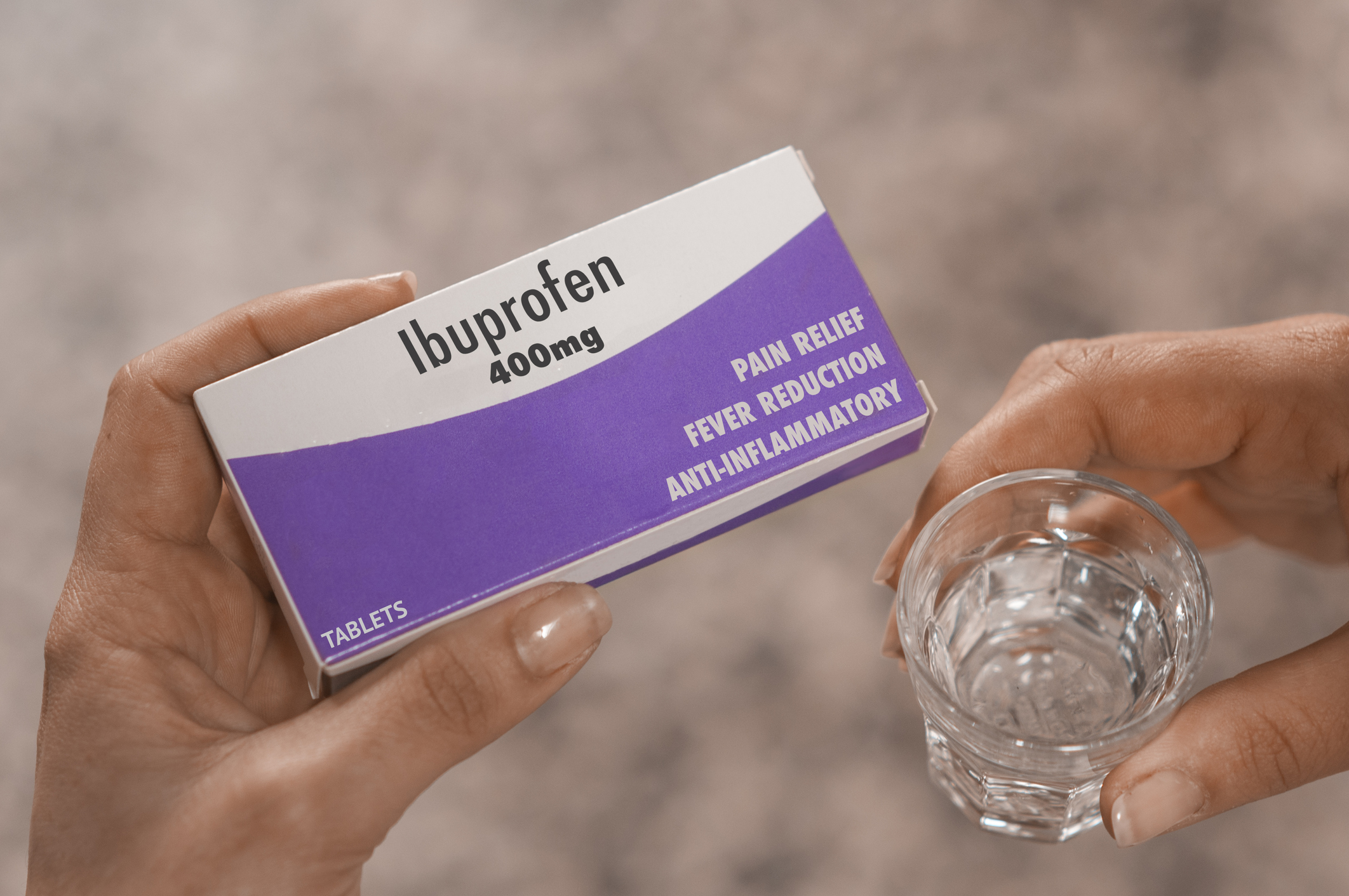Get Easy Health Digest™ in your inbox and don’t miss a thing when you subscribe today. Plus, get the free bonus report, Mother Nature’s Tips, Tricks and Remedies for Cholesterol, Blood Pressure & Blood Sugar as my way of saying welcome to the community!
Don’t combine ibuprofen with these common hypertension drugs

According to the CDC, nearly half of adults in the United States, or 116 million people, are living with hypertension.
Only about 1 in 4 have it under control and chances are that many of them take not one medication but stack several to get their numbers where their doctors would like to see them.
These medications are designed to help their body get rid of excess fluids and take the strain off their heart and blood vessels to reduce their risk of heart disease, heart attack and stroke.
Sounds simple enough, right?
Well, maybe not…
The truth is that taking any medication comes with risks. And blood pressure drugs are no exception.
In fact, not only have blood pressure drugs been found to damage her kidneys over time, recent research has brought to light a new danger — one that comes from combining your blood pressure drugs with a common over-the-counter medication.
A triple whammy for acute kidney injury
The research from the team at the University of Waterloo specifically focused on what happens to patients who use ibuprofen while taking two types of drugs often prescribed to lower blood pressure.
The high blood pressure drugs examined included diuretics which help your kidneys get rid of extra water and salt to make it easier for your heart to pump, such as:
- Aldactone
- Bumex
- Demadex
- Esidrix
- Lasix
- Zaroxolyn
And the other type of drugs were renin-angiotensin system (RSA) inhibitors (also known as ACE inhibitors), which help your blood vessels dilate to improve blood flow and reduce the force required for your heart to pump.
According to the Mayo Clinic, drugs in this category include:
- Benazepril (Lotensin)
- Captopril
- Enalapril (Vasotec)
- Fosinopril
- Lisinopril (Prinivil, Zestril)
- Moexipril
- Perindopril
- Quinapril (Accupril)
- Ramipril (Altace)
- Trandolapril
The researchers used computer-simulated drug trials to model the interactions of the three drugs and their impact on the kidney. And the results showed that in people with certain medical profiles, the combination of ibuprofen and blood pressure medications can cause acute kidney injury, which in some cases can be permanent.
“It’s not that everyone who happens to take this combination of drugs is going to have problems,” said Anita Layton, professor of applied mathematics at Waterloo. “But the research shows it’s enough of a problem that you should exercise caution.”
Overall, when asked why taking the painkiller if you’re on high blood pressure meds should be avoided, Layton had this to say:
“Diuretics are a family of drugs that make the body hold less water. Being dehydrated is a major factor in acute kidney injury, and then the RAS inhibitor and ibuprofen hit the kidney with this triple whammy. If you happen to be on these hypertension drugs and need a painkiller, consider acetaminophen instead.”
Natural options for pain relief
Of course, reaching for acetaminophen rather than ibuprofen isn’t your only option to relieve the inflammation causing your pain. Here are a few options to try:
Omega-3 fatty acids, found in abundance in fish oil derived from cod, trout, herring, salmon and other cold-water fish, help reduce the inflammation behind chronic pain. Research from Cardiff University in Great Britain shows that cod liver oil not only relieves pain but also helps alleviate morning stiffness, joint tissue regeneration and some of the difficulties of autoimmune diseases like RA, lupus and psoriasis. You can get a healthy dose as well from fish or krill oil supplements.
Turmeric, ginger and capsaicin from hot peppers can also help with inflammation and pain. Topical ointment containing capsaicin is a good option to apply directly to painful areas like the knee, elbow, lower back, shoulders and hips.
CBD oil has quite a bit of support for its pain-relieving properties. It’s been shown especially helpful for fibromyalgia pain.
Are you a fan of tart cherries? Research at Oregon Health & Science University suggests that tart cherries have the “highest anti-inflammatory content of any food” and can help people with osteoarthritis manage their pain. Studies by the same group show that runners can reduce their soreness with cherry juice.
Editor’s note: Have you heard of the entourage effect? Dozens of studies show it is now the most effective way to get the most out of a CBD supplement. If full-spectrum, doctor-approved, highly bioavailable CBD oil is for you, click here!
Sources:
Combining certain meds with ibuprofen can permanently injure kidneys — ScienceDaily
Facts about Hypertension — CDC
Blood Pressure Medicines — CDC
Diuretics (Water Pills) for High Blood Pressure — WebMD
Angiotensin-converting enzyme (ACE) inhibitors — Mayo Clinic













